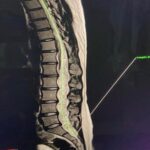New age healthcare delivery models :Transforming the healthcare ecosystem
India
healthysoch
New Delhi, October 26, 2023:
To discuss various facets of the emerging healthcare delivery landscape in India, FICCI and KPMG in India has released a report titled ‘New age healthcare delivery models in India – The emerging healthcare delivery landscape in India’ at the 17th edition of FICCI’s annual healthcare conference – ‘FICCI HEAL 2023’. This report aims to understand the influence of changing healthcare determinants and related challenges and highlights the importance of adopting new-age healthcare delivery models.
The new age healthcare delivery models in the coming decade will be a combination of the metamorphosis of existing and newer ones.
Self-care models: It is not a new term or concept to any one of us and it is part of the day-to-day life of every individual and family. Its scope includes health promotion; disease prevention and control; self-medication; providing care to dependent persons; seeking hospital/specialist/primary care if necessary; and rehabilitation, including palliative care. Self-care models help in making informed healthcare decisions. Some modes include Fitness and wellness, Health and wellness monitoring, Mental health wellbeing programmes, Nutrition and diet planning, Health condition management and Health screening and testing.
Primary care and pre-hospitalisation models: Primary care services in India have undergone a transformative evolution over the years, mirroring the changing healthcare landscape in the country. The amalgamation of traditional primary care centres and online primary care providers is shaping a more comprehensive and inclusive approach to healthcare delivery in India. Some primary care and referral management models include Primary care clinic, Specialised care clinic, Retail pharmacy, Diagnostics, Tele-health services and Care coordination.
Hospital care models: Over the past decade, the landscape of healthcare institutions and hospitals in India has undergone a significant transformation, and the concept of wellness retreats has emerged, offering holistic well-being experiences that go beyond medical treatment. Some accepted hospital care models are multi-specialty hospital, Single specialty hospital, Super specialty hospital, Surgical care management via network hospitals, Transition care facility, Health and wellness centres and retreats and small healthcare organisations (SHCOs).
Post hospitalisation care models: Post-hospitalisation care plays a vital role in the healthcare journey by ensuring the continuity of care for patients following their hospital stay. Some of the post-hospitalisation care models that will continue to be at the core of new age healthcare delivery in India are home healthcare, Remote health management, Rehabilitation centres and Long- term care centre.
The success of the Indian healthcare sector in the coming decade will depend on the alignment and collaboration of the government, payers, private health providers and emerging new-age healthcare providers towards a common goal of “healthy India.” The report highlights the below 10 key enablers to foster new age healthcare delivery models.
- Changing consumer behaviour and self-care/on-demand care – The Indian consumer’s behavioural change has already passed a transition phase, and the coming decade will witness smart consumers. Indian Healthcare 3.0 will witness the emergence of the smart consumer.
- Community Engagement – Community engagement is crucial in healthcare service delivery because it involves actively involving patients, families, and communities in the planning, implementation, and evaluation of healthcare services.
- Population health Management – The population health management approach enables healthcare providers to identify and address the health needs of the entire population rather than just individual patients.
- New avatars of providers – The emerging transformation in healthcare providers prioritises patient-centric care, focusing on delivering personalised, at-home medical services that align with individual needs. Technology-enabled specialised care is at the forefront of this change.
- Digital technology and data-driven care – Digital tech and data-driven care transform healthcare with personalised, real-time, evidence-based services.
- Partnerships and collaborations across value chains – Collaborations among healthcare providers, payers, and tech firms enhance expertise and resource sharing and boosts patient outcomes, streamlines services, and improves engagement.
- Healthcare financing – Healthcare financing norms, like subsidies, tax credits and public insurance, ensure affordable, quality care regardless of income.
- Future healthcare workforce – We must bridge the current healthcare workforce gap and prepare for future demands in the expanding healthcare value chain.
- Sectoral reforms – Promotion of the healthcare sector can lead to better healthcare service delivery by new-age healthcare models by increasing awareness about various healthcare options, encouraging innovation and technological advancements, and fostering collaboration among healthcare providers.
- Data protection and data security – In the digital healthcare landscape, safeguarding personal and sensitive data is paramount.
Commenting on the report, Lalit Mistry, Partner and Co-Head, Healthcare Sector, KPMG in India said, “In the dynamic landscape of Indian healthcare, a profound transformation is underway, driven by innovation and the pressing needs of a diverse population. This new era has revolutionised the approach to healthcare delivery on multiple fronts, building on present infrastructures and systems while introducing new models in the value chain. This FICCI- KPMG in India report has meticulously examined existing and emerging healthcare delivery models in a comprehensive knowledge paper. Through consultations with diverse stakeholders in both public and private sectors, insights were gained into innovative models that hold the potential to redefine India’s healthcare sector.”
Dr. Mahesh Joshi, Co- Chair, FICCI Health Services Committee and President & CEO, Apollo Homecare, “FICCI’s Healthcare Service Committee has been working since 2006 in collaboration with various stakeholders to recommend policy reforms as well as suggestions on improving different aspects of healthcare determinants in the country. FICCI is cognisant of the changing healthcare scenario, the importance of the technology-driven new-age healthcare delivery models and their amalgamation with the traditional models to cater to the need for a patient-centric approach. We sincerely hope that this report will open new avenues to strengthen the establishment of the technology-infused healthcare delivery models in the country, offering concrete solutions with better access, delivery, and management of health.”
healthysoch







